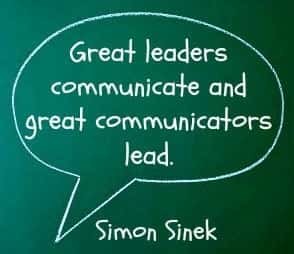Leadership: NLP for Leaders – what makes the difference?
Many business leaders recognise the added value that NLP brings to a variety of business activities and they also value NLP for their own professional & personal development. Leaders, Executives and Business Owners are always on the lookout for development opportunities that help them or their teams become more effective communicators, coaches, mentors, time managers, talent spotters, managers of change and people developers. What all Leaders and Managers have in common is their desire to better understand and support their teams to develop and to help them be the best they can be (and we’re all on the look out for ways to get better results, more easily or effectively, right?).
and they also value NLP for their own professional & personal development. Leaders, Executives and Business Owners are always on the lookout for development opportunities that help them or their teams become more effective communicators, coaches, mentors, time managers, talent spotters, managers of change and people developers. What all Leaders and Managers have in common is their desire to better understand and support their teams to develop and to help them be the best they can be (and we’re all on the look out for ways to get better results, more easily or effectively, right?).
What is NLP all about?
NLP (Neuro-Linguistic Programming) has been described as the art and science of personal excellence – the study of what makes the difference between the excellent and the average. ‘Neuro’ relates to how we use our mind, ‘Lingustic’, is the verbal and non-verbal language we use, and ‘Programming’ our patterns of thinking and behaviour. Some describe it as a ‘practical behavioural psychology’. It looks at the way we take in and process the information from the world around us. At its heart is about communication, and let’s face it business is, at it’s most basic level, ultimately about interactions between 2 people and therefore how well they can communicate, interact and process information is key to success. Rapport is the basis of all communication and is an essential element when it comes to coaching, influencing, building effective relationships or selling. NLP looks at patterns of behaviour and whether they are helpful and bring about the desired results – and if they don’t we can change things to improve success. It is a tool for modeling excellence and being able to reproduce that excellence in ourselves and share it with others. I’m currently working with a retailer who is using NLP to improve customer service, increase sales and enable leaders to understand, communicate and coach their team members more effectively – they’ve see an increase of an average of £20 spend per customer (so the ROI on the training we delivered is fantastic).
‘where’s the proof NLP works’
There are of course skeptics – their view focuses on a lack of evidence that proves how NLP works. This argument always reminds me of the medical profession, which for years said there was no proof that fruit and vegetable intake could help prevent cancer and heart disease. Now it’s a well researched and documented fact and we’re now encouraged to eat 5 portions each day. The NLP community back in the 70’s were never obsessed with proving how what they did worked and of course since that time NLP has been developed further – but its focus remains on practical application (learning and teaching what works and gets results). I recall a conversation I had with a well know Neuroscientist, Amy Brann who when asked about the link between NLP and Neuro-Science agreed with me that just because science & academia has yet to prove how every NLP technique works, that is not to say that it doesn’t work – it’s just that science hasn’t caught up yet (a good example of this is the NLP technique anchoring – science has now proved how it works). As an article in Personnel Today nicely sums up the view of many in the NLP community: ‘I wonder if in a few years’ time a bunch of ‘qualified’ academics will be announcing their ‘brilliant new findings’ about NLP, while some of us will be muttering ‘what took you so long?’’
The ‘proof’ that some people seek is found by talking to people and businesses that have used NLP to increase success, change results and deliver transformation:
“If I can recommend a course to my HR colleagues and management colleagues it’s an NLP practitioner course. I’m constantly impressed with the changes you can bring about in people and help them to be the best they can be…..”
‘I think what I’ve gained most of all from NLP is its overall ethos. One of the key messages that I have taken is that that you have choices and are responsible for them’
‘The NLP models are useful in designing training, coaching and mentoring team members, preparing for meetings and presentations, and building rapport for better relationships with stakeholders’
NLP for Business Leadership
What would you get if you combined a talented and skillful technical professional with a highly effective and capable Leader? (No, this is not the start of a joke!) – what you would get is someone who is extremely valuable to a business organisation as they would be able to use their technical expertise on an individual level while also providing direction and leadership at an organisational level. Everyone has the capability to be a leader, and in fact, we are all already leaders – constantly influencing the people and events around us – our friends, colleagues, team members, our ‘tribes’. However in organisations you often see technical professionals being promoted, and sometimes they struggle with the influencing, communicating and relationship building skills required to be a Business Leader or Manager (I’ve met many leaders and managers who admit that some of the more subtle, softer skills are not their forte). Our experience shows that those organisations who invest in the softer skills of the people they employ in managerial and leadership roles become more efficient, forward-looking and industry-leading. Incorporating NLP into your leadership toolbox will enable you to develop the skills, the outlook, and the behavioural flexibility with which to improve your performance in a world of flatter corporate structures, cross-functional responsibilities, complex relationships, stressed workforces, and local and remote team-working. To excel, the managers and leaders of today require subtle skills that include being able to motivate and really work to get the best out of the individuals they lead. It requires an additional skills set, that NLP can offer.
In business, NLP provides essential tools in many key areas, including:
- Communicating skilfully with peers, direct reports, and with senior management. Establish Rapport with anyone (Rapport being the basis of all communication). Listen deeply. Present using clear powerful language and a format or structure that will appeal to everyone in your audience.
- Help Leaders gain clarity over what they want – vital for providing clear and strong direction
- Understand the systemic nature of communication with and within teams – including the subtle dynamics of non-verbal influence
- Understand the thinking and emotional make-up of teams and of the individuals within these teams – and of the manner in which these individuals pull together
- Gain new insights into situations and relationships using ‘Perceptual Positions’ (an NLP tool used to also resolve conflict and generate new ideas or perspectives)
- Understand oneself, learn to manage your own emotions and have increased self-aware
- Model the successful behaviours of others so they can be replicated
- Understand the role of beliefs and values in what makes people tick
- Know how to utilise values to tailor the motivational approach to suit each individual
- Setting compelling goals and inspiring people by ‘selling’ them the team or organisational vision and getting their ‘buy-in’ to this vision
- Acquire the attitudes and beliefs that underpin confident leadership
- Influence the working environment so that it helps people to be constructive and productive
Want to know more about how NLP can help you or your organisation?
It’s always great to hear about Leadership colleagues who recommend NLP. If you’d like to know more about how NLP could help you (and how you could use it to help others in your business) drop me a message and let chat about how I might be able to help …
Written by Laura Evans – Self Improvement & NLP Expert helping Coaches and Professionals to unleash their potential in business and life with high-quality NLP Training, learn more about Laura and her training at the Unleash Your Potential website.
Unleash Your Potential run public courses and also in-house NLP courses from the introductory 2 day ‘NLP for Business Diploma‘, NLP Practitioner courses and NLP Master Practitioner courses. If you’d like to discuss how an NLP course could assist you contact us either via [email protected] or call us on 02920 023311.


